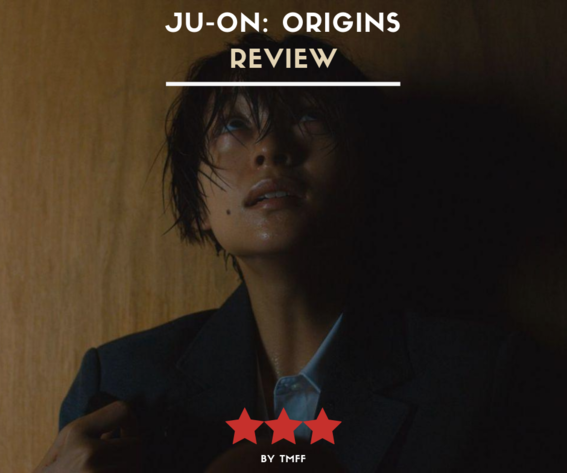I’m a big fan of Japanese horror – I’ve watched many of the classics of this genre, and I enjoy additing to my collection every now and again. I didn’t watch the original Ju-on films, which were made in the early 2000s, so I was a complete newbie when in came to the premise, and the characters. However, this didn’t seem to matter much, as the main theme of the show is difficult to miss. I was particularly excited because the origin stories on display here seem to have been written and produced by the original creators. Furthermore, it absolutely seemed like a doable commitment, with only 6 episodes, averaging at around 30 minutes each. In the end, I was happy to have given Ju-on: Origins a chance, but slighlty disappointed with regard to what it offered, especially when contrasted with my high expectations.
The charms of a haunted house
Ju-on unfolds across several years, and not always in a chronological order. There are many characters, story arcs and dramatic events that push the plot forward, backward and sideways – but everything seems to revolve around a certain haunted house, and a paranormal investigator/writer who wants to find out more about its mysterious (and quite often, deadly) characteristics. At first glance, it’s just a random house on a random street, in a random suburban neighbourhood of Tokyo. However, once crossing its entranceway, unfortunate events seem to follow the people who do so. It’s not just the house itself as a physical location, but also whatever paranormal forces seem to be tied to it.
Through the episodes, we get to witness some of these sombre events that either happened within the house, or stem from a visit there. Misfortune seems to follow the characters who interact with the house’s premises, and the final two episodes do a decent job of tying most of the puzzle pieces together. The show manages to deliver some really memorable moments, but most of them excel in only one thing – the gory details. These are very well represented, and will most likely stay with the audience long after the show has delivered its final moments. However, this is perhaps something I would expect from a title such as Saw, but here, I wanted something a bit more different, or complex.
The problematic haunted house principle
The biggest issue of Ju-on Origins is that it tries to explore what is simply too much territory in too little time. Every time I finally felt hooked to a certain story arc, or character development arc, the episode quickly wrapped up, and the next one started in a completely different situation. The voids between the stages of some of the characters’ lives are interesting to explore, but ultimatelly, their development is treated with the same degree of superficiality. The various characters with a recurring nature – the paranormal story writer, a police investigator, the widowed wife of one of the house’s ‘victims’, a high school girl who experiences a massively unpleasant event within the house, and doesn’t manage to get her life back on track – all of them would have deserved much more attention. Instead, most interesting bits that could have given further context to these characters are stripped to their bare bones, and the show instead insists on presenting a couple more cases of people suffering as a result of the house’s oppresive environment. By the end, Origins seems to give up on any attempt of exposition, instead choosing to aggressively push its conclusion. Again, i don’t know if by doing this, it gets plus points on the ties with the previous Ju-on projects, but even so, it doesn’t feel like the best of choices.
The bottom line
Ju-on Origins impressed me on certain fronts, but likewise disappointed me on just as many. It never reaches a balance in terms of horror elements, plussing too much on graphic details, while taking away from atmosphere development and tension. The pacing problems and constant plotline shifts do not let a cohesive structure to unfold, instead making it feel like a collection of semi-interesting snippets. However, with all its problems, I still enjoyed it. It still manages to differentiate itself from most Western horror productions, and watched in Japanese, with subtitles in English, it at least brough me a breath of fresh air – which is sorely needed in the horror genre.










Leave a reply